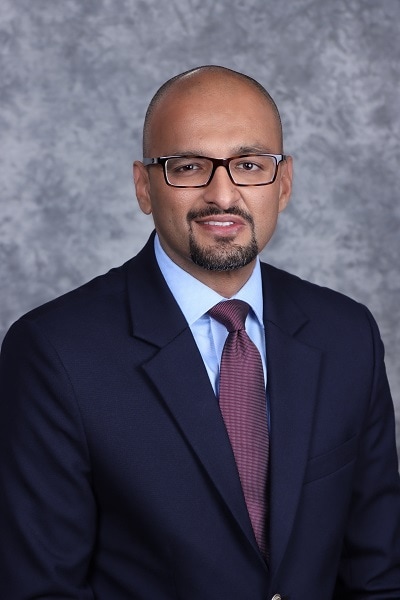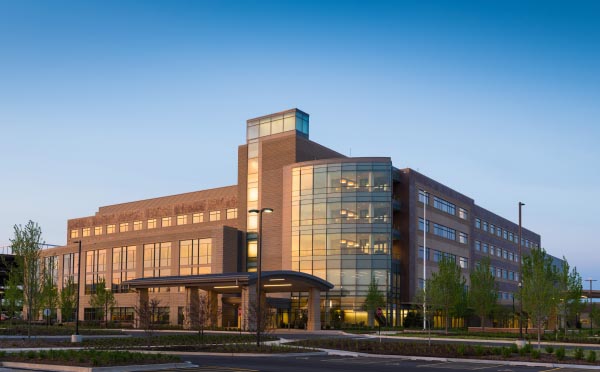Interventional cardiologist Huntley, IL | Dr. Abbas Rampurwala
Based at Northwestern Medicine Cardiology, Huntley Hospital, local Dr. Abbas Rampurwala (Dr. R) specializes in interventional cardiology. Dr. R is affiliated with most major hospitals in Northern Illinois, including Huntley hospital, but he is not employed by a hospital. He has his own independent practice. His mission is to help patients avoid heart failure by treating heart disease before it gets that far.
When you are having heart issues, establishing a good connection with a cardiologist can be a matter of life and death. It is obviously essential to find someone that has the skills to deal with your issues but it is equally important that he understands you as a person and takes his time for you. Dr. R does not only treat coronary artery disease, heart attacks, and other conditions that affect the heart, he also educates his patients regarding heart health and monitors conditions that impact the heart health and heart disease.
Independent vs hospital based heart specialists
Interventional cardiology is a specialty that focuses on the diagnosis and treatment of cardiovascular diseases using complex cardiac catheterizations and technologies. These specialists are often called upon to perform procedures such as angioplasty, coronary stenting, and cardiac bypass surgery. They may also be trained in the use of new medications and devices to treat cardiovascular issues.
Regular cardiology is a specialty that focuses on the diagnosis and treatment with conventional methods such as blood tests, x-rays, and surgery. Not seeing an interventional cardiologist for all your needs, may force you to make a switch when your condition changes and you need a procedure done that a regular cardiologist does not do, whereas an interventional cardiologist does all heart related procedures. In other words, with an interventional cardiologist you never have to make a change when time is of the essence.
As an interventional cardiologist, Dr Rampurwala is able to do most procedures a patient may need. He is also qualified to do any and all treatments a regular cardiologist would do. So, if you need a cardiology specialist and you live in Huntley, Dr Rampurwala is an excellent choice.
Main services Dr. Rampurwala, MD, performs in Huntley:
-
- General cardiology. If you have been diagnosed with a heart condition, your cardiologist may recommend one or more procedures to help improve your heart health. This article goes over some of the most common procedures performed by cardiologists.
Here are some FAQs:Q: What is general cardiology?
A: General cardiology is a branch of medicine that deals with the diagnosis and treatment of diseases and conditions related to the heart, blood vessels, and the circulatory system.Q: What types of conditions are treated in general cardiology?
A: Some conditions treated in general cardiology include coronary artery disease, congenital heart defects, heart failure, arrhythmias, and valvular heart disease.Q: What tests are used to diagnose cardiac conditions?
A: Cardiac tests used to diagnose cardiac conditions include electrocardiograms, stress tests, echocardiograms, and cardiac catheterization.Read more about general cardiology here.
- General cardiology. If you have been diagnosed with a heart condition, your cardiologist may recommend one or more procedures to help improve your heart health. This article goes over some of the most common procedures performed by cardiologists.
-
- Echocardiogram. An echocardiogram is a test used to assess how well your heart is functioning. It uses high-frequency sound waves (ultrasound) to produce images of your heart. The test is also known as an echo.
Most asked questions:Q: What is an echocardiogram?
A: An echocardiogram (also known as an echo) is a type of ultrasound test that creates images of your heart. It helps your doctor see how your heart is working and evaluate the structure and function of your heart chambers, valves, walls, and blood vessels.Q: How should I prepare for an echocardiogram?
A: You don’t need to do anything special to prepare for an echocardiogram. Wear something comfortable, as you may need to change into a gown for the test. You’ll also need to remove any jewelry or metal objects that could interfere with the scan. Be sure to tell your doctor about any medications you’re taking.Q: What can I expect during an echocardiogram?
A: During an echocardiogram, you’ll lie on an exam table and a technician will place an ultrasound device on your chest. The technician will apply a clear gel to your skin to help the device move smoothly over your chest. You may hear a whooshing sound as the device sends sound waves through your chest wall and captures images of your heart. The test usually takes about 30 minutes. - Stress Test: A stress test is a diagnostic tool used to evaluate the coronary arteries. The test is also used to determine how well the heart functions during physical activity.
Relevant questions:
Q: What is a stress test?
A: A stress test is a type of medical test that helps measure how well your heart works during physical activity. It can help doctors diagnose conditions such as coronary artery disease and determine the risk of a heart attack or stroke.
Q: What happens during a stress test?
A: During a stress test, you will be asked to exercise on a treadmill or stationary bike while being monitored with an electrocardiogram (ECG) machine. The amount of exercise and the intensity of the exercise will gradually increase until your heart rate reaches a particular level.Q: What are the risks of a stress test?
A: The risks of a stress test include feeling lightheaded or dizzy from the exercise, and in rare cases, a heart attack. Your doctor can discuss the risks with you before the test.
- Echocardiogram. An echocardiogram is a test used to assess how well your heart is functioning. It uses high-frequency sound waves (ultrasound) to produce images of your heart. The test is also known as an echo.
-
Interventional cardiology in Huntley
Interventional cardiology is a specialty that focuses on the diagnosis and treatment of cardiovascular diseases using complex cardiac catheterizations and technologies. These specialists are often called upon to perform procedures such as angioplasty, coronary stenting, and cardiac bypass surgery. They may also be trained in the use of new medications and devices to treat cardiovascular issues.
Regular cardiology is a specialty that focuses on the diagnosis and treatment with conventional methods such as blood tests, x-rays, and surgery. Not seeing an interventional cardiologist for all your needs, may force you to make a switch when your condition changes and you need a procedure done that a regular cardiologist does not do, whereas an interventional cardiologist does all heart related procedures. In other words, with an interventional cardiologist you never have to make a change when time is of the essence.
As an interventional cardiologist, Dr Rampurwala is able to do most procedures a patient may need. He is also qualified to do any and all treatments a regular cardiologist would do. So, if you need a cardiology specialist and you live in Huntley, Dr Rampurwala is an excellent choice.
Choosing cardiology specialists in Huntley:
Generally, when a person is looking for a physician, they will consider the location of the practice. However, when it comes to heart health, it is important to also consider the doctor’s qualifications and experience. To find a doctor who is qualified and experienced in heart disease, you may want to consider finding a doctor who is affiliated with a respected hospital. Additionally, you may want to ask your friends or family members who have had good experiences with certain doctors if they would be willing to recommend them. Dr Rampurwala has his office in Algonquin, but is only a few miles away from Northwestern Huntley hospital.

About The Hospital
Northwestern Medicine Huntley Hospital, an extension of Northwestern Medicine McHenry Hospital. It opened its doors in August 2016 and was designed with a focus on patient privacy. Amongst other medical fields, the hospital specializes in cardiovascular interventions, surgical services and obstetrics. It is conveniently located at 10400 Haligus Road , Huntley, IL 60142


